Discover Green Dreamer: Seeding change towards collective healing, sustainability, regeneration
Green Dreamer: Seeding change towards collective healing, sustainability, regeneration

Green Dreamer: Seeding change towards collective healing, sustainability, regeneration
Author: Kamea Chayne
Subscribed: 2,162Played: 89,959Subscribe
Share
© Green Dreamer
Description
Green Dreamer explores our paths to collective healing, biocultural revitalization, and true abundance and wellness *for all*.
Curious to unravel the dominant narratives that stunt our imaginations and called to spark radical dreaming of what could be, we share conversations with an ever-expanding range of thought leaders — each inspiring us to deepen and broaden our awareness in their own ways.
Together, let's learn what it takes to thrive — in every sense of the word.
Curious to unravel the dominant narratives that stunt our imaginations and called to spark radical dreaming of what could be, we share conversations with an ever-expanding range of thought leaders — each inspiring us to deepen and broaden our awareness in their own ways.
Together, let's learn what it takes to thrive — in every sense of the word.
437 Episodes
Reverse
What could it mean to heal our relationship with the dead, the decaying, and the dark in order to move towards more liveable futures? What possibilities might arise when we shift from cultural narratives of fear, discomfort, and disgust with these unseen worlds — to ones which honor the wisdoms that they may be able to offer?In this episode, Perdita Finn draws on her book Take Back the Magic to invite us to find kinship and guidance from beings that have passed.Through a renewal of ancient practices and rituals, Finn invokes the reclamation of our bodies, inner wisdom, and personal mantras that keep us whole and grounded during the troubled times of modernity.Subscribe and listen to Green Dreamer via any podcast app and read on for our episode transcript.
In this episode, geographer, writer, and sound artist AM Kanngieser invites us to reconsider the diverse ways in which we register both sound and silence — pushing back against the idea that listening itself is a virtuous act with universality in experience.Through their own journey as a geographer and sound artist, Kanngieser sheds light on the colonial repercussions of extracting sound, knowledge, and information from landscapes and communities that have historically been taken from without consent. What are the moral considerations for using recording technologies initially developed for military surveillance? How do we ask for permission to capture sounds—not just from the people of a place but also from the land themselves? And what does it mean to blur the boundaries of our various senses as we become more attuned and responsive to the world?
Why is the North Africa and Middle East region so vital to center in discourses on climate justice? How does the current global energy transition reinforce colonial, extractivist power dynamics? And what is the meaning of “eco-normalization” in the context of the Arab world?Join us in this episode as Algerian researcher and activist Hamza Hamouchene dissects crucial narratives surrounding the notion of “green energy colonialism.” Posing critical questions about the current beneficiaries of renewable energy projects, Hamouchene offers thought-provoking perspectives that empower listeners to unpack the systemic injustices of “green colonialism.”Listen via our website or any podcast app, and find the transcript below.
Who does “fair trade” as a certification program speaking to conscious consumers really serve? How might it fall short of what it promises—supporting farmers and producers from falling into the deepest pits of poverty while paradoxically also keeping them at a certain level? What does the process of rebuilding power entail for communities who are grappling with local inequalities within a larger global corporate agricultural chain?In this episode, we converse with author and geography Lindsay Naylor as she delves into the daily acts of resistance and agricultural practices by the campesinos/as of Chiapas, Mexico, in their pursuit of dignified livelihoods and self-declared autonomous communities. Drawing from her fieldwork, Naylor explores interaction with fair trade markets and state violence within the context of the radical history of coffee production.
What does it mean to recognize the limitations of “biodiversity” as a gauge of planetary wellbeing? How do we make sense of the heads of big corporations like Shell being major patrons of the largest conservation organizations? And how might a politics of disability justice shape diverse futures beyond an exclusive framework of Western-Scientific conservation?In this episode, we converse with scholar and anti-oppression activist Audra Mitchell on how intersecting forms of systemic violence work to extract, eliminate, and conceal cultural and ecological plurality—and how the survival, preservation, and organization of oppressed and marginalized communities alone resist such violence.Extended episode: patreon.com/greendreamer
“What we’re talking about are plants that people desire for ornamental collection and will oftentimes go to great lengths to get them. Sometimes, that desire leads to conservation problems, and sadly… in the worst-case scenario, the extinction of an entire species.”Where does cacti and succulent life fit within the realm of illegal/illicit wildlife trade? What conversations might arise when we include them in a wider picture of political ecology and colonial histories? And how might the entanglement of desire, care, and conservation complicate trends of in-vogue succulent and cacti collecting?Join us in this episode with our guest Jared Margulies, author of The Cactus Hunters, as we delve into prickly themes of globalized trade networks, desire, and preservation.
What can grief teach us about being truly alive? And how might seeds, and the compassionate acts of tending to them, be the “helpers and teachers” of mediating our collective grief?In this episode, we are honored to welcome Vivien Sansour, founder of the Palestinian Heirloom Seed Project—an initiative centered on caring for and preserving seeds as keepers of ancestral connection and models of subversive advocacy.Join us as Vivien shares about the systemic violence of disconnection and relational severance, the socio-economic pressures turning many historically food-centered farms into monocultural plantations of commercial tobacco for export, how Palestinian agriculturalists are standing up to reclaim food sovereignty, and more.
What might the histories of human and gray whale relations show us in terms of how the stories we tell shape the texture of our relationships to our more-than-human kin? How can adopting a plurality of narratives and cultural perspectives in and around a particular species disrupt the kinds of binaries that so often underly academic research methods? And what might a more diverse, accessible, and context-specific approach to field research look like with humility and deep-listening at its core? Tune in to this episode with our guest, Anna Guasco, to explore these questions and more.
This is a behind-the-scenes conversation with Gabes Torres, a contributor and the program advisor of alchemize, and Green Dreamer's team members Anisa Sima Hawley and Kamea Chayne. We explore the themes of imagination, escapism, dissociation, and discomfort when it comes to dreaming, sensing, relating, and becoming otherwise.Enroll in alchemize through January 12th, 2024: www.greendreamer.com/alchemize
“One in four bites of our food is pollinated by honeybees, but at what cost in the system that we are in now? How could that look different if our agriculture was more localized, regionalized, and sustainable?”In this episode, we warmly welcome Ang Roell—founder of They Keep Bees—to discuss their practice of working and learning with honeybees as models of resilience, care, and responsiveness. Ang’s work, which demystifies bees to decenter logics of power-over relations and consumer-driven work culture, frames a conversation around how we might learn from hive-lives in times of collapse.Join us in this invitation to re-member our webs of interdependence—to slow down, swarm together, and work within rhythmic fields of collective care. And join us in alchemize: radical imagination for collective transformation, to experience two practices led by Ang: “You are a honeybee” and “Pollinating networks of collective care.”
In Green Dreamer's episode 413, we welcome Dr. Hilding Neilson, who shares with us his knowledge of the night skies and expertise as an astronomer traced by his Mi’kmaw lineage. Trained in the Western-scientific sphere of astrophysics and shaped by Mi'kmaq methodologies, Dr. Neilson aims to disrupt the Euro-centric claim on the night sky as codified through historical and modern Astro-colonial pursuits of objectivity, discovery, nomenclature. In demanding that Indigenous stories and systems of knowledge not only be heard but given a leading role on the stage of public policy making, Hilding invites us to reflect upon the value of night sky knowledge and ponder how it reflects and shapes life on earth, as well as how we choose to ethically engage with this knowledge moving forward.
In this episode, we are joined by A. Laurie Palmer: a writer, artist, and author of the book The Lichen Museum. In paying attention to lichen, Laurie looks to these symbiotic organisms as a template for enriching human and multi-species relationality. How might lichen, and their refusal to be scientifically categorized, offer a model of living that nurtures slowness, adaptability, and diversity? In what ways do they remind us how to practice mutual aid, and reconfigure narratives of dominance? Join us in conversation with Laurie as she invites us to dream and play with lichen through artistic explorations of multiplicity and prosperity. And join us in alchemize to be invited into imagination practices inspired by lichen ways of worlds.
In this episode, we welcome our guest Dekila Chungyalpa, who reminds us of our intra-dependant existence with all of life. Traced by a lineage of Tibetan Buddhist practitioners, Dekila weaves together teachings from her cultural and religious upbringing with her work as an environmental program director—from which she invites us to reflect on the ways in which Western conservation efforts fall short. In her work with faith-based organizations, Dekila prompts a dialogue around binary paradigms that persist even within environmental and activist movements.Join us as we dive further into Dekila’s world and unravel the intricacies of interdependence, deep time, and more.Episode song feature: Scissor-tailed Flycatcher by Ben White via Spirit House RecordsSupport our podcast: patreon.com/greendreamer
“My life goal is to get our governments to understand that Indigenous sovereignty and freshwater fish futures are completely linked.”In this episode, we welcome Dr. Zoe Todd, who invites us to think alongside a critical lens of Indigenous fish philosophy and examine relationships between Indigenous sovereignty and fish well-being in Canada. By asking how we can learn with fish as they “listen with their whole being,” Zoe prompts discussions on compassionate listening, the fundamental link between the future of fish wellbeing and Indigenous sovereignty worldwide, and their relationship with art as research practice.Tune in as we swim in waters of critical attunement to our wider ecological entanglements, as inspired by Zoe’s devotion to fish as companions of care.Music credit: Spirit House RecordsSupport our work: Patreon.com/greendreamer
In this episode, we welcome our guest Charlotte Wrigley, who invites us to contemplate the upheaval of extinction as a discontinuous process—a becoming, rather than an end. Charlotte’s inquiry into this matter straddles the edges of human relations, geography, climate science, and ethics against the backdrop of permafrost and its changing form. Unveiling the intra-connected worlds of thawing permafrost and de-extinction efforts, Charlotte waltzes with sticky tensions of a rapidly heating planet and the need to “cool down” expeditious techno-races. How might we learn from permafrost itself, as well as Arctic communities / biomes, and stay with the trouble of the unfixed and unpredictable? Support our show: patreon.com/greendreamerGet the transcript and episode references: greendreamer.comSong feature: Concept of Love by Cheery via Spirit House Records
“Once folks start to pick away at that scab of understanding how much of a role microbes play in the lives of other things in good ways and bad ways temporally, spatially, physically, and spiritually, it really does open up a rich vein of a new dimension — to start considering the world around us and how we fit in that world.”In this episode we are joined by Siv Watkins, founder of the platform “Microanimism”. Inviting us to deepen our intimacy with the complex, multi-faceted microbial world, Siv deploys the lenses of science, mysticism, and animism to advocate for some of the smallest, and most mysterious, beings on the planet.We glimpse into the depth of entanglement between microbes (also referred to as “the smalls”) and their ancient relationship with cycles of life and death; sink into a purview of deep time; and explore questions of “what makes us human?”. Are “our” micro-biomes even “ours”?Join us as we “shrink down” to expand cosmic perspectives in relation to the reverent, and sometimes terrifying, microbial kin.(The musical offering featured in this episode is Scissor-tailed Flycatcher by Ben White.)Enjoying our podcast and want to see it continue? Join us on Patreon today starting at $2/mo: www.greendreamer.com/support
In this episode, we are joined by Dr. Patricia Kaishian, a mycologist, writer, and educator who gestures to mycology as a queer discipline. Situated as a queer member of Armenian diaspora, Patricia threads connections between the often misunderstood and mis/under-represented displacement of mycelial bodes and her own. Offering a glimpse of the complex, fascinating, taxonomy-defying world of fungi, Patricia invokes reflections on how we can learn from, dream with, and reclaim queer existence with our fungal kin.What stories of diversity, fluidity, and resilience do they sporulate? What lessons can they inspire in an age of ecological collapse? And what narratives can they invite us to decompose and re-birth?(The musical offering featured in this episode is When You Carried Me by Oropendola.)This episode was brought to you by our supporting listeners. Join us on Patreon to help us keep our show alive: www.greendreamer.com/support
In the episode, we welcome Dr. Eshe Lewis to discuss her life and learnings as an activist, anthropologist, and storyteller. Eshe walks us through glimpses of her time with Afro-Peruvian women as part of her doctoral research and how this experience transfigured beyond the siloed parameters of academic study into personal, historical, and political realms.Eshe’s conscious intent of questioning, complicating, and re-positioning anthropology not only as an academic discipline, but a field of ethical practice, casts an inspirational light on the role and reachability of storytelling. Join us as she voices this critical exposure of in-between, multi/cross-lingual modes of communicating—not only as a means of empowerment but as an invitation to lean into joy and awe.(The musical offering featured in this episode is Scissor-tailed Flycatcher by Ben White. The episode-inspired artwork is by Taylor Tinkham.)This episode was brought to you by our supporting listeners. Join us on Patreon to help us keep our show alive: www.greendreamer.com/support
“[...] The United States started to heavily invest in subsidizing growing wheat for exporting purposes. That resulted in flooding international markets, including Jordan’s markets. Cheap American wheat left many of the small-scale farmers unable to compete under record prices.”In this episode, we welcome Lama Khatieb, co-founder of Zikra for Popular Learning: a Jordan-based collective that aims to empower community members to revalue their identity and culture, through the cultivation and sharing of their local and traditional knowledge. We visit themes of agricultural interdependence in relation to Jordan’s history of wheat and bread production, how small grassroots initiatives are taking matters of food sovereignty into their own (literal) hands, and more.Lama endeavors to draw the richness of village life and local harvesting practices to our attention. Through the efforts of the Al-Barakeh Wheat Project (whose name also entails the practice of blessing and abundance), Lama and fellow participants respond not only to Jordan’s current dependence on imported wheat but aim to tap into the wider cultural and ecological ramifications of losing local practices.Join us as we dive into what the spirit and practice of “Barakeh” teaches in terms of cultural reclamation, small-scale initiatives, food interdependence, and relationships with the land.(The musical offering featured in this episode Concept of Love by Cheery. The episode-inspired artwork is by Lucy Halsam.)This episode was brought to you by our supporting listeners. Join us on Patreon to help us keep our show alive: www.greendreamer.com/support
In this episode, we welcome anthropologist Daniel Ruiz-Serna, whose work, situated in the Choco region of Colombia, aims to expose the entanglement of political and ecological violence whereby echoes of conflict/healing reverberate through place. In light of the enmeshment between war and land, Daniel welcomes a framework of living territories, as traced by his life/work with the diversity of human and more-than-human communities of Bajo Atrato, Choco.Tune in as Daniel invokes questions around: What stories do the land and its respective guardians cry out in the face of ongoing damage—that which exceeds designated categories of violence, and thus, so-called systems of repair? Accordingly, when it comes to human and more-than-human rights, what are the shortcomings of legal justice systems insofar as they fail to consider the life and spirit of territory, as well as those who are inextricably tied to the life of such territory? How might the legal language of “justice” and “repair” be limited by, even tethered to, the roots of oppression? And what kinds of schisms, shifts, and stories are needed to reframe these concepts?The musical offering featured in this episode When You Carried Me by Oropendola.Support Green Dreamer: GreenDreamer.com/support



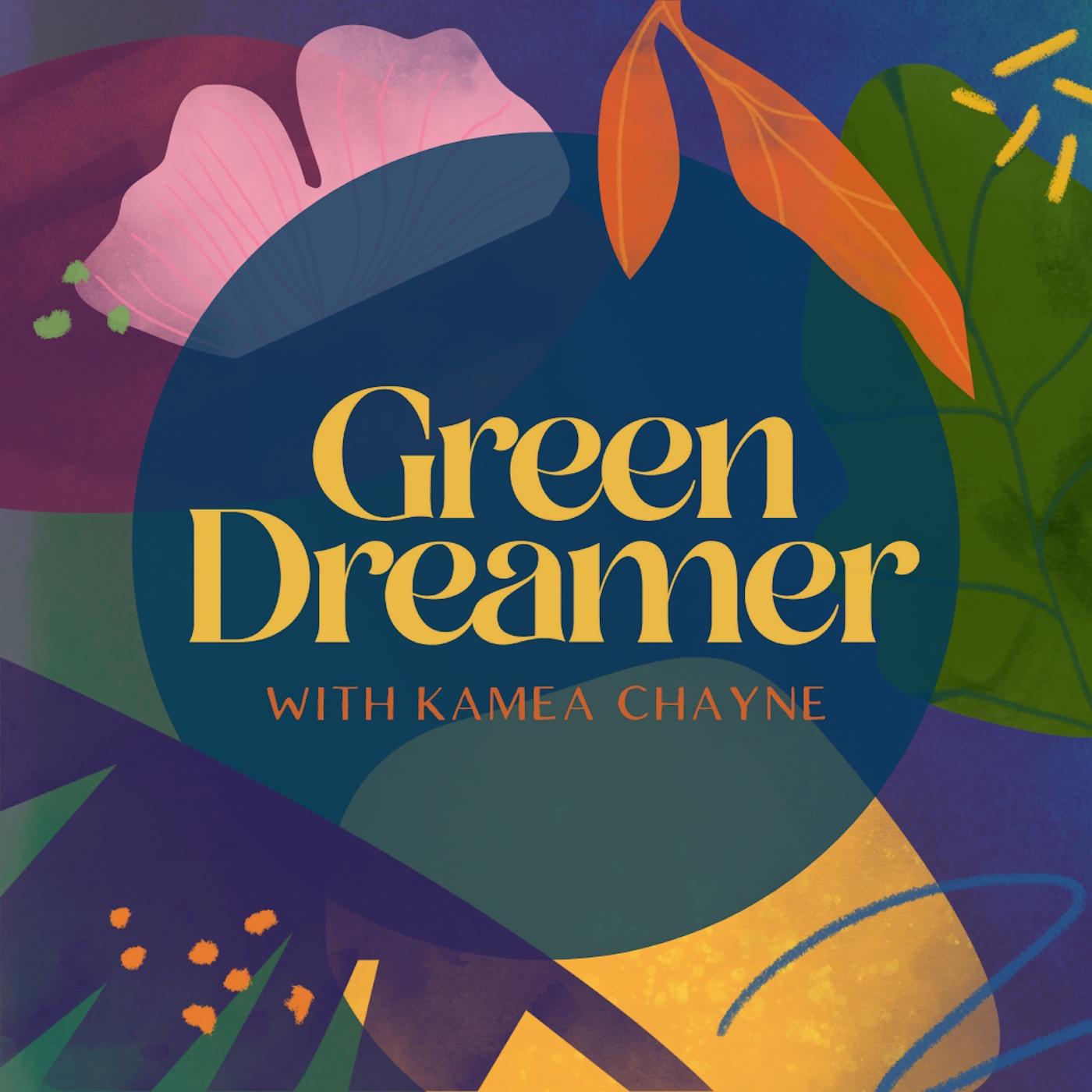
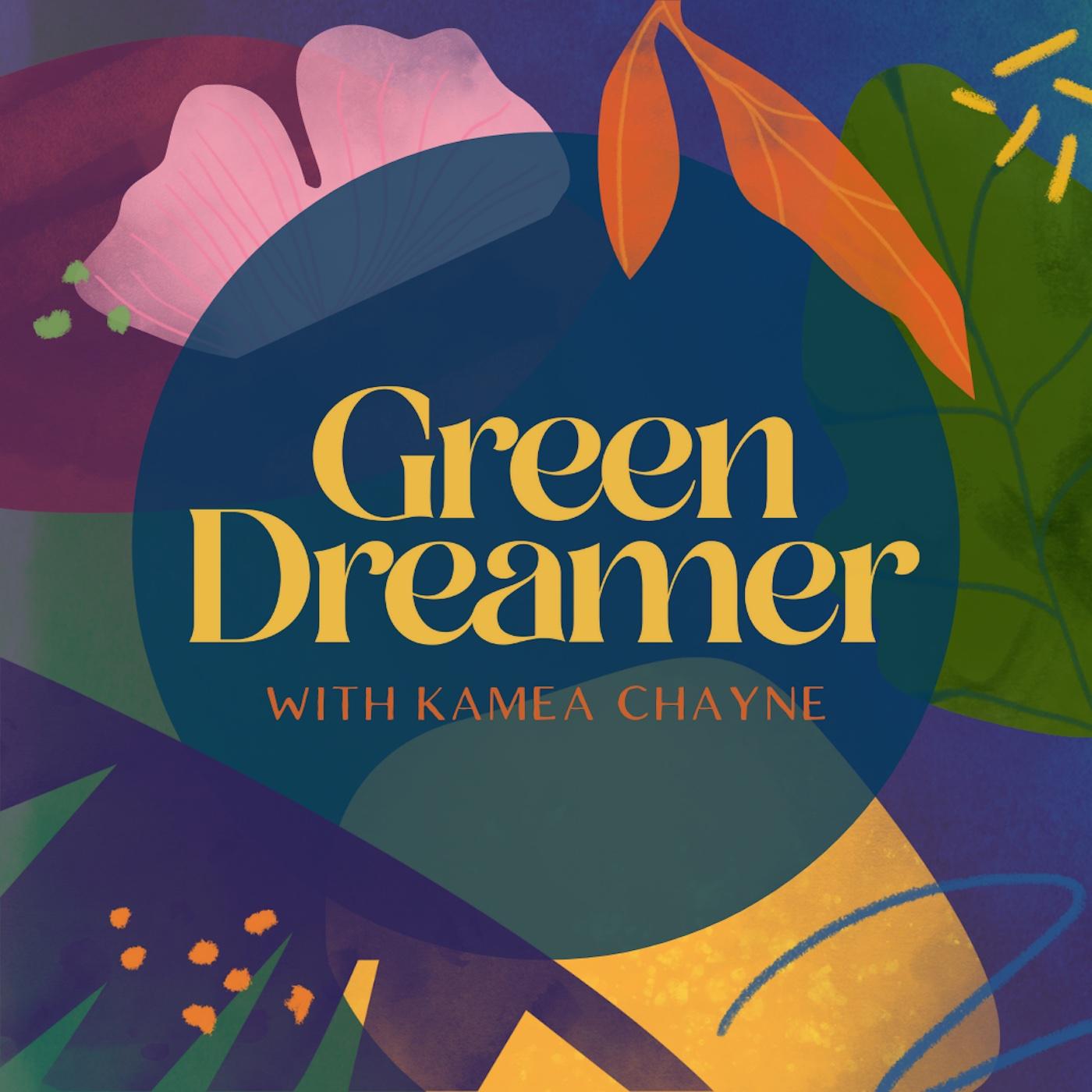
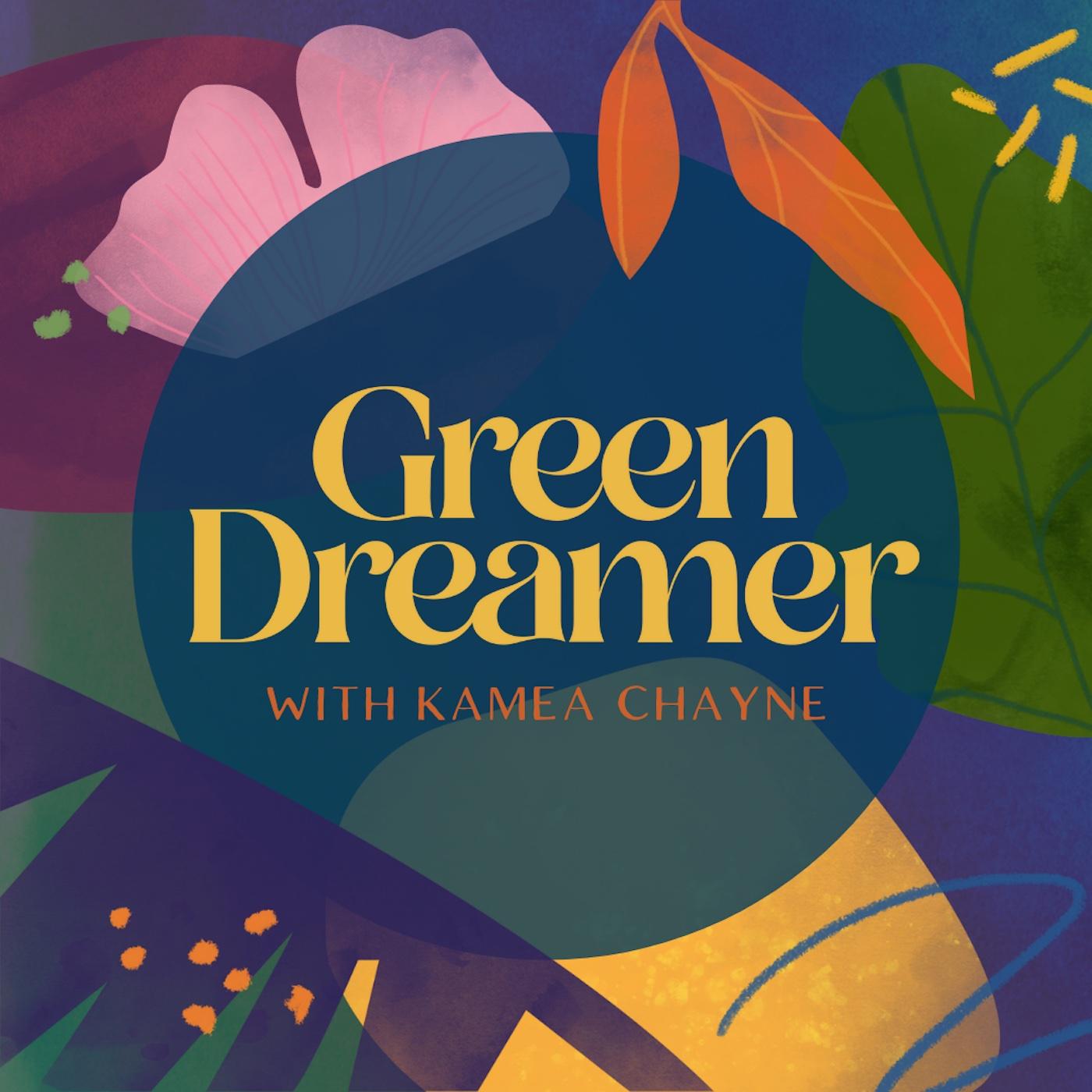
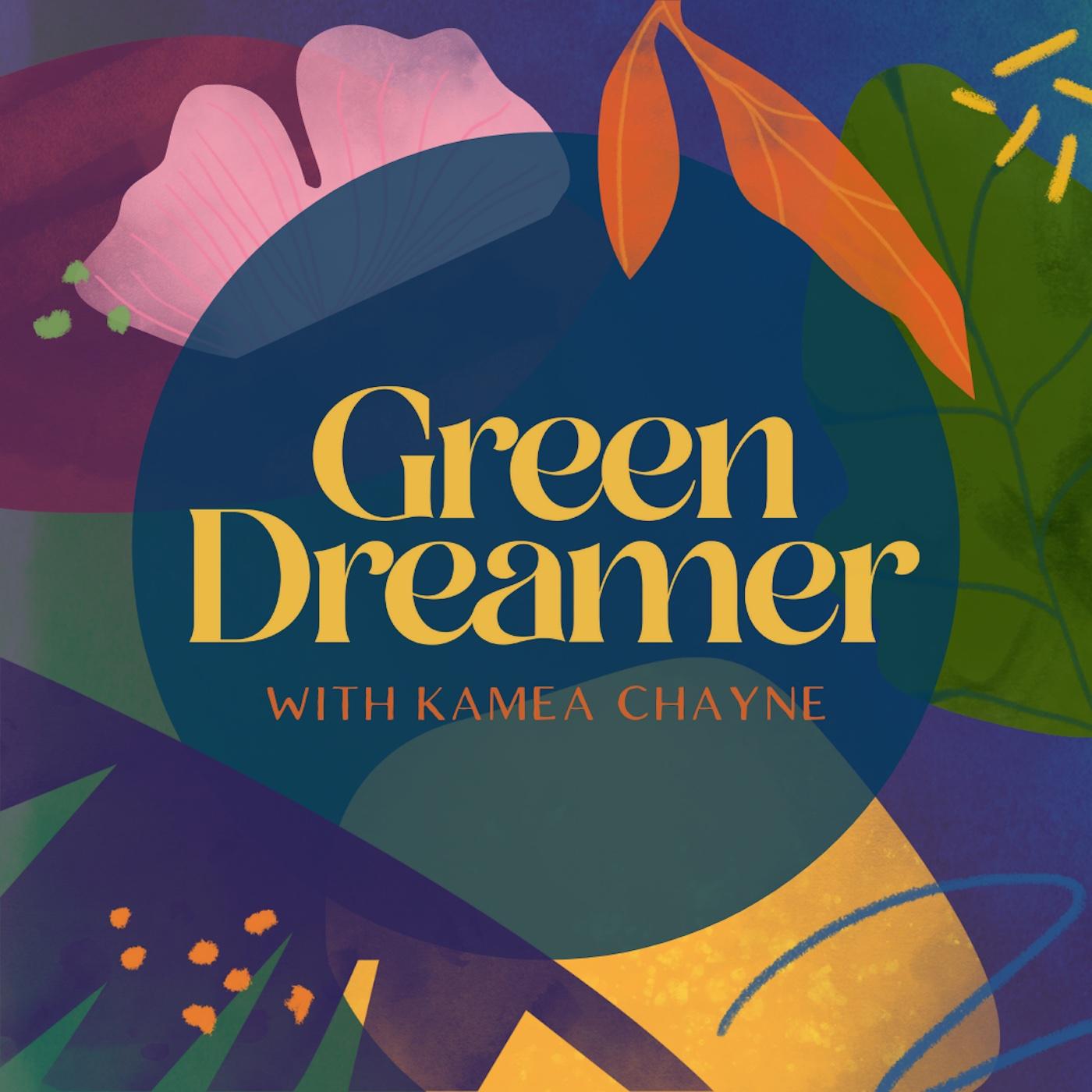
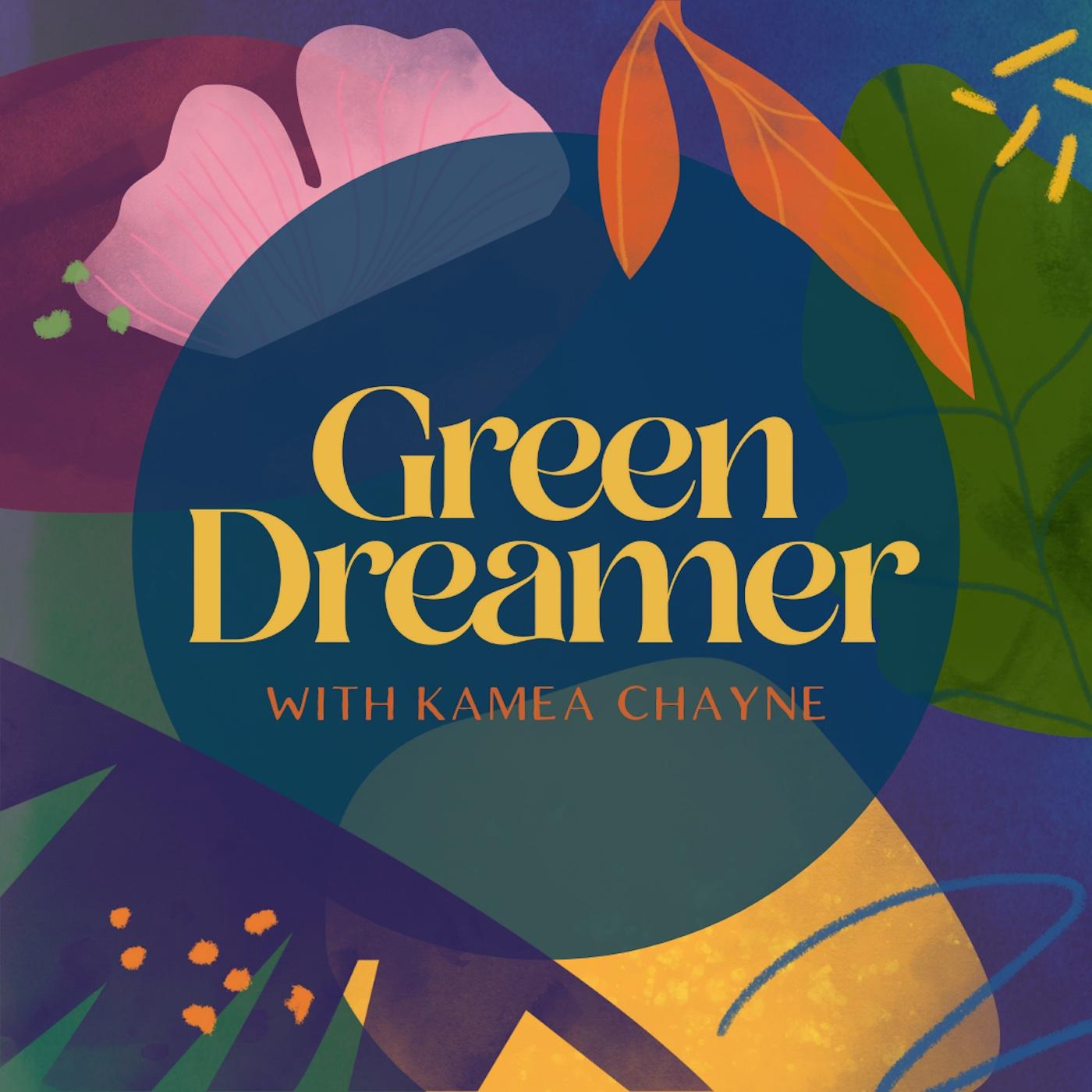



Kamea, will you pretty please interview Paul Kingsnorth??
Just subscribed- enjoying the variety of topics & information.
Hmmm a lot of her data can’t be easily found online. Not to undermine the overall messages she’s sharing but just want to double check her numbers
This episode was awesome! Very good remark to live sustainable for oneself before sustaible for the planet!
erazno yla chokolata
My hero Captain Potter